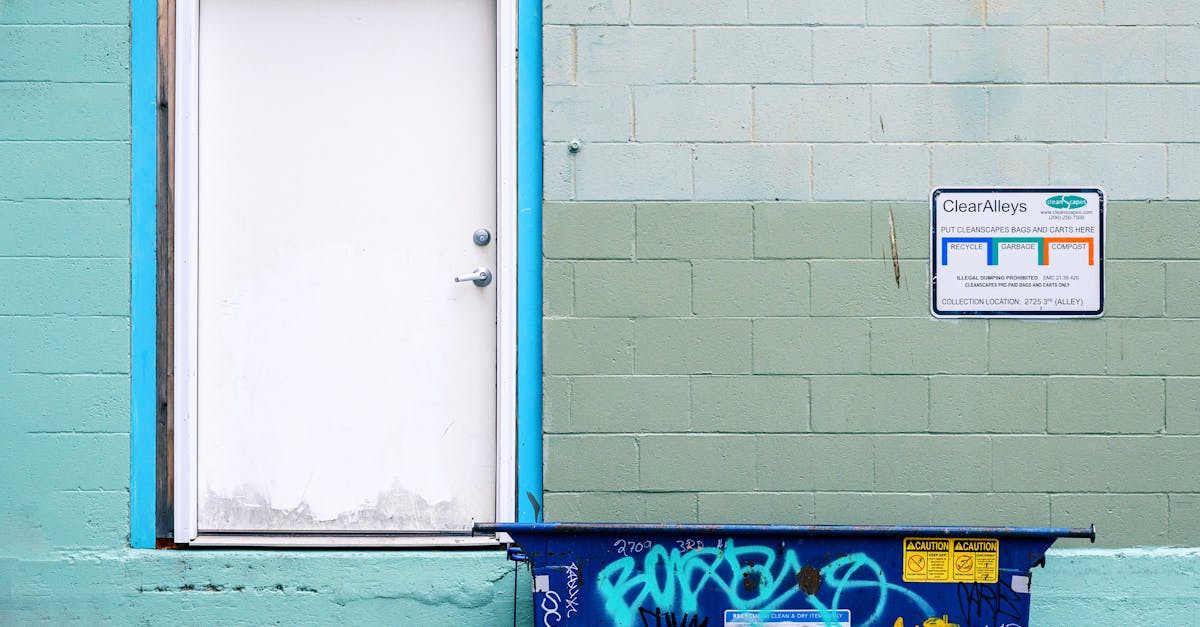How much does the smallest dumpster cost?

Table Of Contents
Multiple Rental Options
When considering small dumpster rentals, customers typically encounter a range of options tailored to different needs. Many companies provide choices between various sizes, allowing renters to select a dumpster that best suits the scope of their project. Daily, weekly, and monthly rental terms are common, offering flexibility based on the expected duration of use. Each option presents various pricing structures and potential inclusions, such as delivery and pickup services.
Additionally, many rental services offer specialized containers designed for specific types of waste. For instance, there are dumpsters specifically meant for construction debris, while others cater to yard waste or household junk. This variety helps ensure that renters can find a solution that aligns not only with their size requirements but also with the nature of the materials they need to dispose of. Understanding these multiple rental choices can aid in making informed decisions that fit both budget and project expectations.
Shortterm vs. Longterm Rentals
Choosing between short-term and long-term rentals impacts both pricing and convenience. Short-term rentals, typically lasting a few days to a week, are ideal for smaller projects like home renovations or yard cleanups. These options often come with flexible terms that allow renters to quickly dispose of waste without committing to a lengthy contract.
Long-term rentals offer a different set of advantages, suitable for larger or ongoing projects. Homeowners and contractors can benefit from having a dumpster on-site for weeks or even months, enabling them to manage waste as it accumulates. Although the daily cost might be lower for short-term rentals, long-term agreements often provide substantial savings for extensive cleanup efforts.
How to Estimate Your Needs
Estimating your needs for a dumpster rental starts with understanding the scope of your project. Consider the types of materials you will be disposing of and the volume they will occupy. This evaluation can help you gauge the appropriate size for your rental. Small dumpsters typically range from 10 to 15 cubic yards, making them suitable for small renovations, yard cleanups, or decluttering. Recognizing the nature of your waste will assist in making an informed decision.
Calculating the right size also involves assessing the duration of your project. If it extends over several days or weeks, a slightly larger container may be beneficial to avoid overflow and additional trips. Visualizing the placement of the dumpster and the frequency of your disposal needs will provide further insight. Balancing the cost with the size ensures you select the most efficient option for your specific situation.
Calculating the Right Size
Choosing the appropriate dumpster size is crucial to avoid overspending or running out of space. Consider the type and amount of waste generated for your project. Standard sizes for small dumpsters range from 2 to 10 yards. A 2-yard dumpster suits small cleanouts or minor renovations, while a 10-yard may accommodate larger tasks like medium-sized home renovations or landscaping projects.
To refine your estimate, think about the frequency of waste generated and how long it will take to fill the dumpster. If you're cleaning out a room, a smaller size could suffice. For ongoing projects like a construction site, opting for a larger dumpster may be more efficient. Taking the time to assess your needs will lead to a more cost-effective and practical solution.
Benefits of Renting a Small Dumpster
Renting a small dumpster offers numerous advantages for both residential and commercial projects. One significant benefit is the ability to manage waste effectively and keep workspaces organized. This helps to streamline the disposal process. With a designated container for debris, individuals can maintain a cleaner environment, which leads to improved safety and productivity.
Another key benefit lies in the flexibility small dumpsters provide. They are suitable for a variety of tasks, from home renovations to decluttering spaces. Their compact size allows them to fit in smaller locations, making them an ideal choice for urban settings. Additionally, renting a small dumpster often comes with a more affordable price point, making it a cost-effective solution for those with limited waste disposal needs.
Convenience and Efficiency
Renting a small dumpster offers significant convenience for residential projects or business tasks. It allows individuals to dispose of waste without multiple trips to disposal sites. Instead of navigating through local regulations regarding waste disposal, a dumpster on-site simplifies the process. Homeowners can focus more on their projects rather than logistics.
Efficiency increases when a designated space for waste is available. Continuous access to a dumpster minimizes interruptions during work. This arrangement saves time and contributes to a cleaner workspace. Projects can progress without clutter, offering a more organized environment.
FAQS
What is the average cost of renting the smallest dumpster?
The average cost of renting the smallest dumpster typically ranges from $150 to $300, depending on the rental company and location.
Are there any additional fees associated with dumpster rentals?
Yes, additional fees may include delivery charges, pickup fees, and charges for exceeding weight limits or rental periods.
How long can I rent a small dumpster?
Rental periods vary, but most companies offer options for both short-term (1-7 days) and long-term (up to several weeks or months) rentals.
What factors influence the cost of renting a small dumpster?
Factors that influence the cost include the size of the dumpster, rental duration, location, demand, and any additional services requested.
Can I keep the dumpster longer than the agreed rental period?
Yes, but you may incur extra charges for extending the rental period, so it's best to discuss your needs with the rental company in advance.